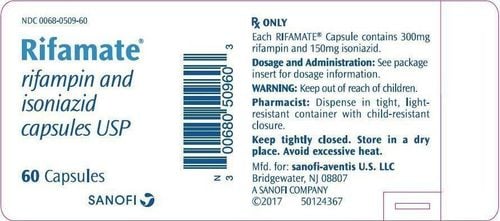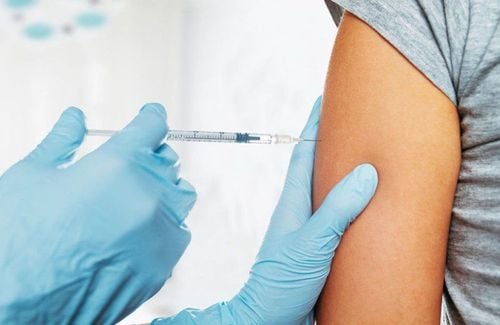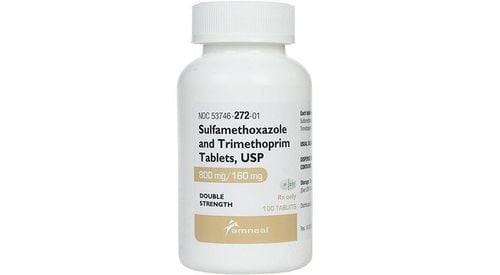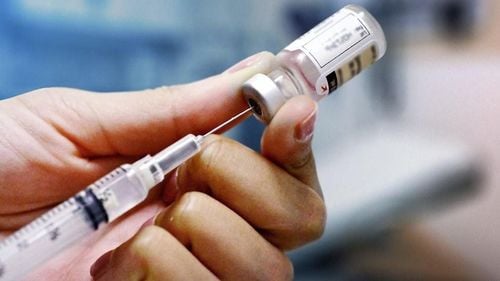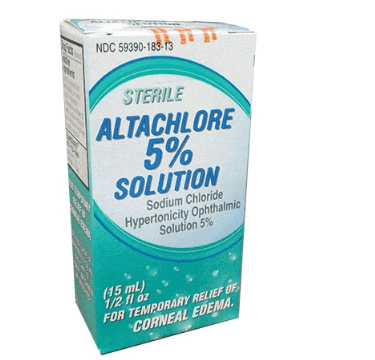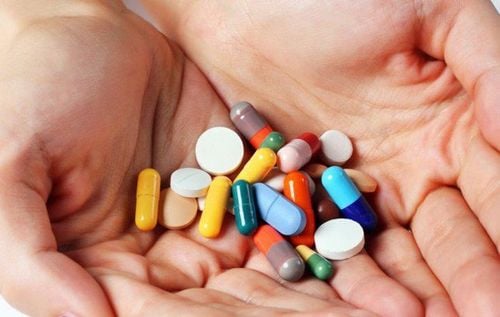This is an automatically translated article.
Becacipro is a drug belonging to the group of drugs that treat parasites, anti-infectives, antivirals, and antifungals. Becacipro drug contains Ciprofloxacin, a new active ingredient of the quinolone class, which inhibits bacterial gyrase inhibitors. To ensure effective use, users need to follow the instructions of the doctor and refer to the information content in the article below.
1. What are the uses of Becacipro?
1.1. What is Becacipro? Becacipro is a drug belonging to the group of anti-parasitic, anti-viral and anti-fungal drugs. Becacipro has registration number VD-8394-09, manufactured by Becamex Pharmaceutical Joint Stock Company.
Becacipro drug is made in the form of film-coated tablets. Packing: Box with 2 blisters x 10 tablets. Becacipro drug has the main ingredient Ciprofloxacin (in the form of Ciprofloxacin HCl), the content of 500mg 1.2. What are the uses of Becacipro? Indication
Infections of the respiratory tract, ears, nose and throat. Glomerulonephritis or infections of the urinary tract, genitals and including gonorrhea Gastrointestinal, bile duct disease, osteoarthritis, and soft tissue disease Obstetrics and gynecology, septicemia, or meningitis, peritonitis, and eye infection. Contraindications
People with hypersensitivity to ciprofloxacin, or quinolones. Pregnant and lactating women. Children and young children. The patient has epilepsy. People with a history of tendon rupture or tendinitis.
2. Usage of Becacipro
2.1. How to take Becacipro Becacipro is a film-coated tablet that should be taken orally. Patients need to take Becacipro tablets whole with a sufficient amount of filtered or boiled water. The drug is used regardless of meal time If the patient takes the drug on an empty stomach, the active ingredient can be absorbed more quickly. 2.2. Dosage of Becacipro Mild to moderate infections: 250 to 500 mg, twice daily. Severe infections with complications: 750 mg, twice a day. Treat for 5 to 10 days. Renal failure: ClCr 30 to 50 mL per minute: 250 to 500 mg over 12 hours. Renal impairment: ClCr 5 to 29 mL per minute: 250 to 500 mg over 18 hours. Dialysis: 250 to 500 mg over 24 hours. Handling missed dose: Take the dose of Becacipro immediately after remembering. Usually, the drugs can be taken more slowly, than the time prescribed by the doctor from about 1 to 2 hours. Except for drugs with strict dosing time. However, if the time is too close to the next dose, the patient should skip the missed dose of Becacipro, never double the dose. Because it may cause danger to the health of the user.
Treatment of overdose: If you have accidentally taken a large dose of Becacipro, it should be considered to apply supportive measures to treat the following symptoms: induce vomiting, or gastric lavage, diuretic. Careful monitoring of the patient and supportive treatment, such as adequate fluid resuscitation, is required.
3. Notes when using Becacipro
Becacipro with ciprofloxacin should be used with caution in patients with a history of epilepsy or central nervous system disorders, in those with impaired liver or kidney function, and in those with glucose 6 phosphate deficiency. dehydrogenase, people with myasthenia gravis. Long-term use of Becacipro may cause overgrowth of bacteria that are not sensitive to the drug. It is necessary to monitor the patient and make regular antibiograms to have appropriate treatment measures according to the antibiotic chart. Becacipro may cause tests for Mycobacterium tuberculosis to be negative. Becacipro may cause dizziness and lightheadedness, lightheadedness, and affect the ability to drive a vehicle or operate machinery. Limit the use of Becacipro for young children and growing children (in experiments, the drug caused cartilage degeneration in gravity-bearing joints). Pregnancy:Becacipro should only be used in pregnant women in cases of severe infections, where there is no alternative antibiotic, requiring fluoroquinolones. Lactation
Becacipro should not be given to a nursing mother, because the ciprofloxacin in Becacipro accumulates in breast milk, and may reach concentrations that are harmful to the baby. If the mother must take ciprofloxacin, breastfeeding should be discontinued.
4. Side effects of the drug Becacipro
Becacipro has a well-tolerated ciprofloxacin component. Side effects of Becacipro are mainly on the gastrointestinal tract, or the central nervous system and the skin.
Common, ADR more than 1/100
Gastrointestinal: Nausea, and vomiting, diarrhea, or abdominal pain Metabolism: Temporarily increased levels of transaminases. Uncommon, 1/1000 below ADR less than 1/100
Systemic: Headache, and drug-induced fever. Blood: Eosinophilia, or lymphopenia, polymorphonuclear leukopenia, anemia and thrombocytopenia. Cardio-pulse: The patient notices a faster heart rate. Central nervous system: agitated. Gastrointestinal: digestive disorders. Skin: Rash, or itching, and superficial phlebitis. Metabolism: Temporarily increased serum creatinine or bilirubin and alkaline phosphatase. Musculoskeletal: Pain, swelling of the joints. Rarely, ADR less than 1 in 1000
Systemic: Anaphylactoid or anaphylactoid reaction. Blood: Hemolytic anemia, leukocytosis, thrombocytosis and altered prothrombin levels. CNS: convulsions, confusion, or psychosis, paranoia, insomnia and depression, peripheral dysesthesia, or visual disturbances, including hallucinations, hearing disturbances , tinnitus, taste and smell disturbances, increased intracranial pressure. Gastrointestinal: Pseudomembranous colitis. Skin: Skin-mucosal syndrome, vasculitis, Lyell's syndrome, erythema nodosum, erythema multiforme exudate. Liver: A few cases of hepatocellular necrosis, hepatitis and cholestatic jaundice have been reported. Muscle: Myalgia, or inflammation of the tendon (tendon) surrounding tissue. There have been a few cases of tendon rupture, especially in the elderly, when used in combination with corticosteroids. Urogenital - Genitourinary: There is crystalluria when the urine is alkaline, hematuria, acute renal failure and interstitial nephritis. Other: Sensitivity to light with sun exposure, laryngeal or pulmonary edema, dyspnea and bronchospasm. Occasional: loss of appetite, diarrhea, dyspepsia, belching, or vomiting, abdominal pain, abdominal distention, headache, dizziness, increased BUN, creatinine, and elevated liver enzymes. Rarely: stomatitis, shock, photosensitivity, edema, erythema, acute renal failure, jaundice, hematologic changes, pseudomembranous colitis, arthralgia, myalgia.
5. Becacipro drug interactions
Theophylline; NSAIDs; antacids; sucralfate; and metal ions; cyclosporine. Concomitant use with non-steroidal anti-inflammatory drugs (ibuprofen, indomethacin...) will increase the side effects of ciprofloxacin. Concomitant use of aluminum- and magnesium-containing antacids will reduce serum concentrations and reduce the bioavailability of ciprofloxacin. Ciprofloxacin should not be used concurrently with other antacids that need to be taken at a distance (it is recommended to take an antacid 2 to 4 hours before taking ciprofloxacin). The absorption of Becacipro may be reduced by an half if used concomitantly with certain cytotoxic drugs (cyclophosphamide; vincristine; doxorubicin; cytosine arabinoside and mitoxantrone). If didanosine is used concurrently, the concentration of Becacipro drug is significantly reduced. Patients should take Becacipro 2 hours before didanosine or 6 hours after didanosine. Preparations containing iron (fumarat; gluconate and sulfate) significantly reduce the intestinal absorption of Becacipro. Preparations with zinc have less of an effect. Avoid concomitant use of ciprofloxacin with iron and zinc preparations, should be taken as far apart as possible. Concomitant administration of sucralfate reduces the absorption of Becacipro significantly. Patients should take antibiotics 2 to 6 hours before taking sucralfate. Concomitant administration of Becacipro with theophylline may further increase serum theophylline concentrations, causing theophylline side effects. Blood levels of theophylline should be checked and theophylline dose may be reduced if the patient is forced to take two drugs. Concomitant use of Becacipro and ciclosporin may cause a transient increase in serum creatinine. Blood creatinine should be checked twice a week. Probenecid reduces glomerular filtration rate and tubular secretion, thereby reducing urinary excretion of the drug. Warfarin in combination with the drug Becacipro can cause hypoprothrombin. Blood prothrombin should be checked regularly and the dose of anticoagulants should be adjusted.
6. How to store Becacipro
The drug is stored Becacipro at room temperature, in a cool and dry place, avoiding direct sunlight. Because the high temperature can damage the ingredients in the medicine. Becacipro should also not be left near places where there are devices that, when used, emit a higher temperature than room temperature such as televisions, or refrigerators, microwave ovens, stoves... Do not leave Becacipro in places with moisture. as high as: the bathroom. The shelf life of Becacipro is 36 months from the date of manufacture. Keep out of reach of children and pets. Before taking Becacipro, you should carefully check the expiration date of the drug. Absolutely do not use Becacipro expired medicine printed on the package. Becacipro is a drug belonging to the group of drugs used to treat parasites, anti-infectives, antivirals, and antifungals. Becacipro medicine contains Ciprofloxacin, a new active ingredient of the quinolone group.




